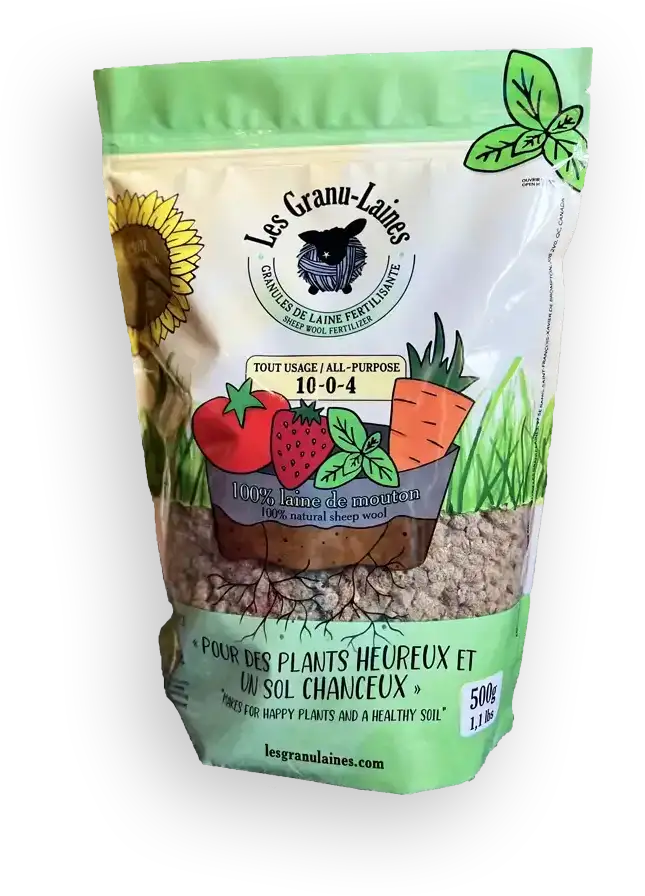Who are we?
France Custeau and Louis Desrosiers, we are the owners of the company Les Granu-Laines. We ourselves manufacture the fertilizing wool granules which are made exclusively from sheep wool. The wool comes from our breeding and that of producers in our region. Our farm is located in St-François Xavier de Brompton, very close to Sherbrooke in Estrie.
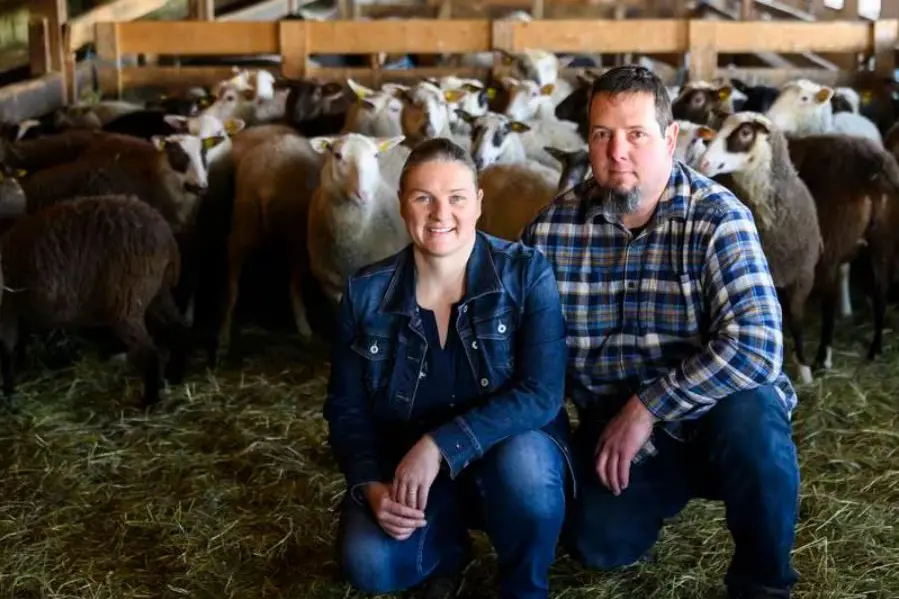
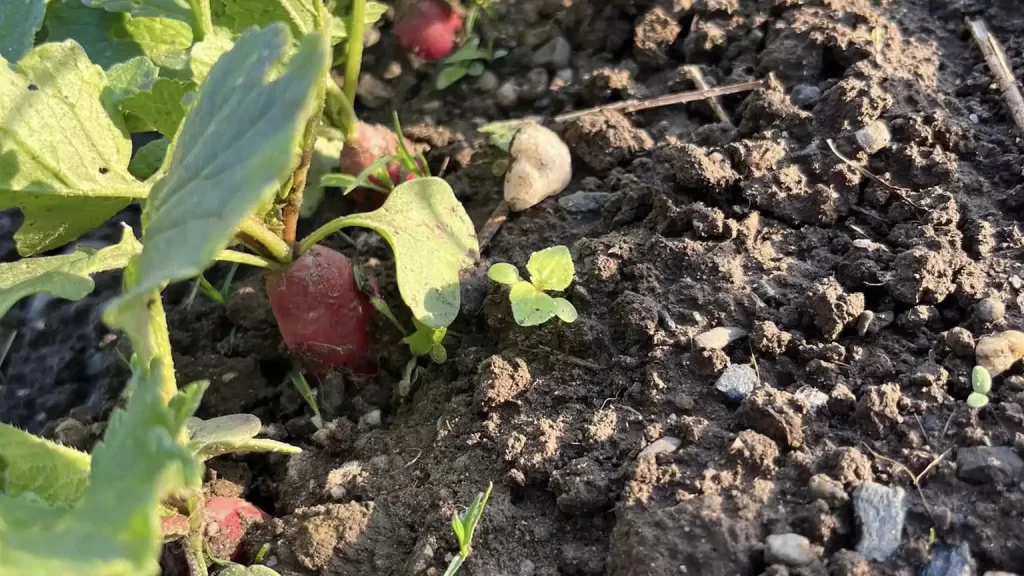
Where does this idea come from?
Where did the idea of making wool pellets come from? Following two drier summers, our hay fields suffered from a lack of water and thus reduced our hay yields. In the fall of 2021, Louis (owner of the farm) decided to carry out research to find out what we could do to keep water in the ground. The result is a wonderful find, wool absorbs 20 to 30% of its weight in water but it is also rich in nutrients.
Our research allows us to have more information because other people are already making wool pellets. The results with its use are amazing. Next step, find machines that transform WOOL into pellets. In December 2021, we are going to Ontario with 100 lbs of our wool and from different breeders and different breeds to try the machines and see if the transformation works well. The result is conclusive. Read more…
We find out more and plan how to finance our machines. During the winter of 2022 we will order the machines. In the meantime, you will need to provide what is necessary to adjust the electricity because the machines are European and cannot be connected directly to our Quebec system. During this time, the granules produced in Ontario were analyzed and to the great surprise of the laboratory technician, the wool granules were a very versatile and effective fertilizer. This brought us a lot of challenges because this European mode of operation is not well known here. And for us, explaining something that we don’t really know was not an easy task to make ourselves understood. We ended up finding the right people who made it work.
At the end of summer our machines finally arrive and we can produce pellets. In reality, this is where the real adventure began. Wool may seem like an easy material to cut, but in fact this is not the case at all. After several months of trial and error and additional research, we have a much better handle on the transformation. We have finally reached the goal of producing a ton of pellets per week. I will spare you all the details of the journey.
In Canada, to sell fertilizer (even if it is a completely natural product) you must comply with the fertilizer law. So, we have started the procedures for compliance, analyses, traceability, quality control, etc. We can confirm that our product meets the standards and that it is safe to use. Granu-Laines meets federal safety tolerance thresholds for heavy metals, fecal coliforms and salmonella.
I would like to thank everyone who helped us carry out this project, and particularly Mr. Gino Caron from Omindustriel in Montmagny. He is like an angel from heaven who helped us at a very important moment.
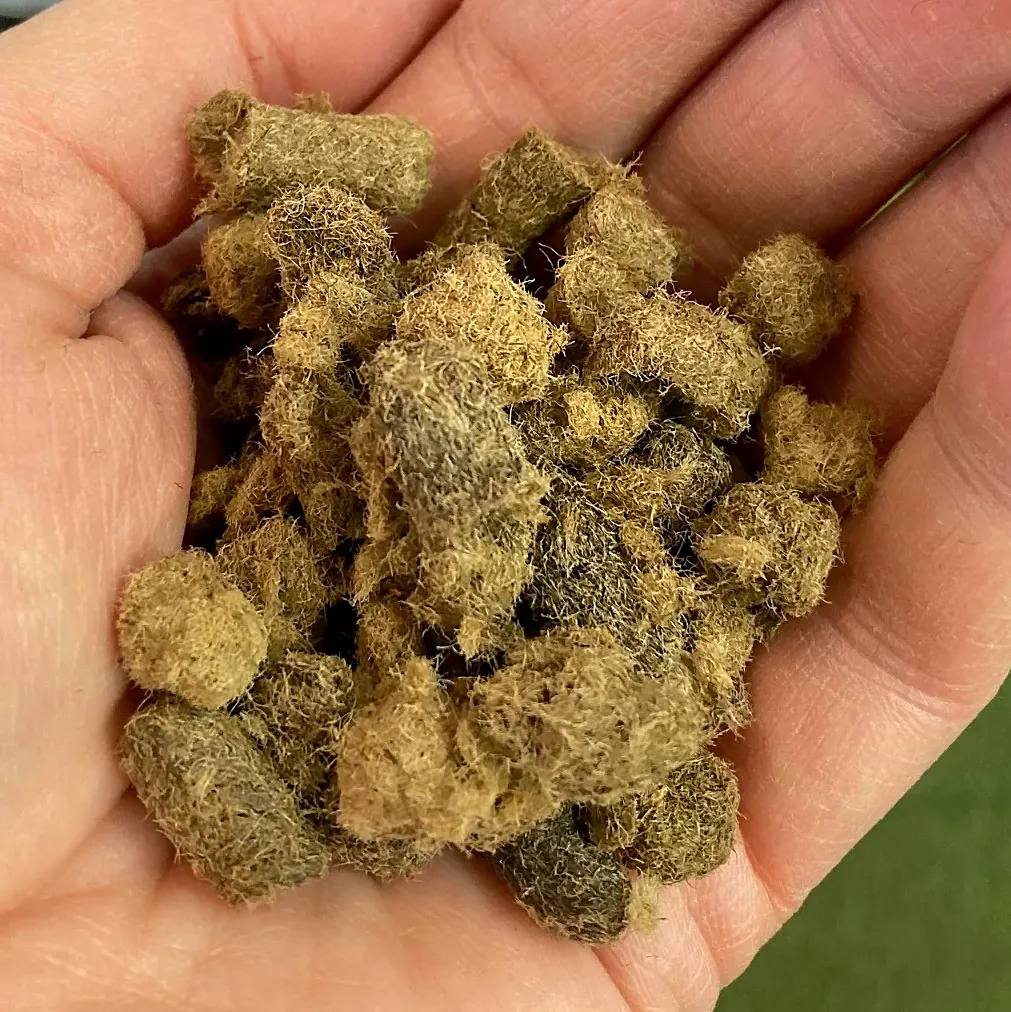
Features
Wool fertilizer is very versatile, it allows it to absorb around 20% of its weight in water which is easily available to plants. In addition, the fact of absorbing water also allows Granu-Laines to create good aeration of the soil. According to the analysis of the product, a certain quantity of nitrogen is available quickly, i.e. around 50%, and the other part is released more slowly for prolonged and continuous fertilization throughout the growing season. Its use on the surface can be used to repel slugs, simply create a barrier with Les Granu-Laines.
Suitable for all your crops: vegetable garden, small fruits, annual and perennial flowers, planters, houseplants, trees, shrubs and lawns. Perfectly suited for urban agriculture, i.e. for growing in pots and containers.
Results
Tests in our garden have shown us its effectiveness throughout the summer with only one application during sowing and planting of vegetable plants. This results in an increase in growth, yield, and number of fruits. The colors of vegetables and fruits are more vibrant. Allows you to reduce the frequency of watering.
“I found it an ingenious idea to recover wool that cannot be used for knitting when leaving. So I bought a bag for my smart pots because I grow quite a bit just with that. I really have a good harvest this year. Thank you for this great find.” – translated from french
Louise Neron – Facebook review Les Granu-Laines
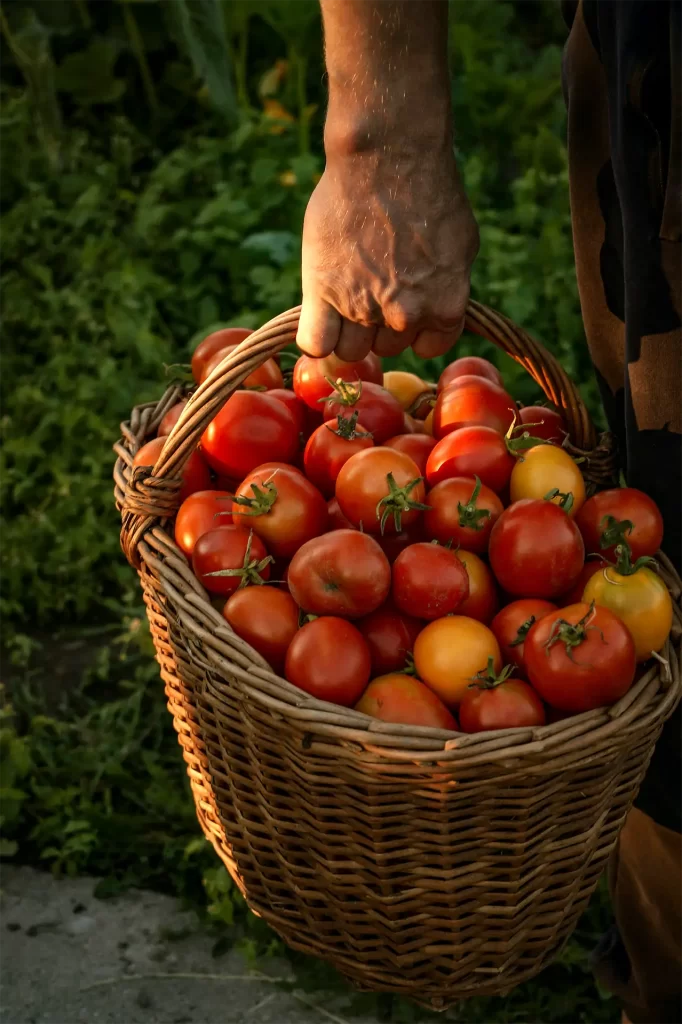

Environment
Our product is made of 100% wool, from a renewable source, environmentally friendly and does not emit any waste. Once transformed into granules, its composition remains stable and can be stored for several months in a cool, dry place.
The use of Granu-Laines allows the valorization of an agricultural product and thus contributes to the circular economy and the recovery of an unused product or export outside the country.
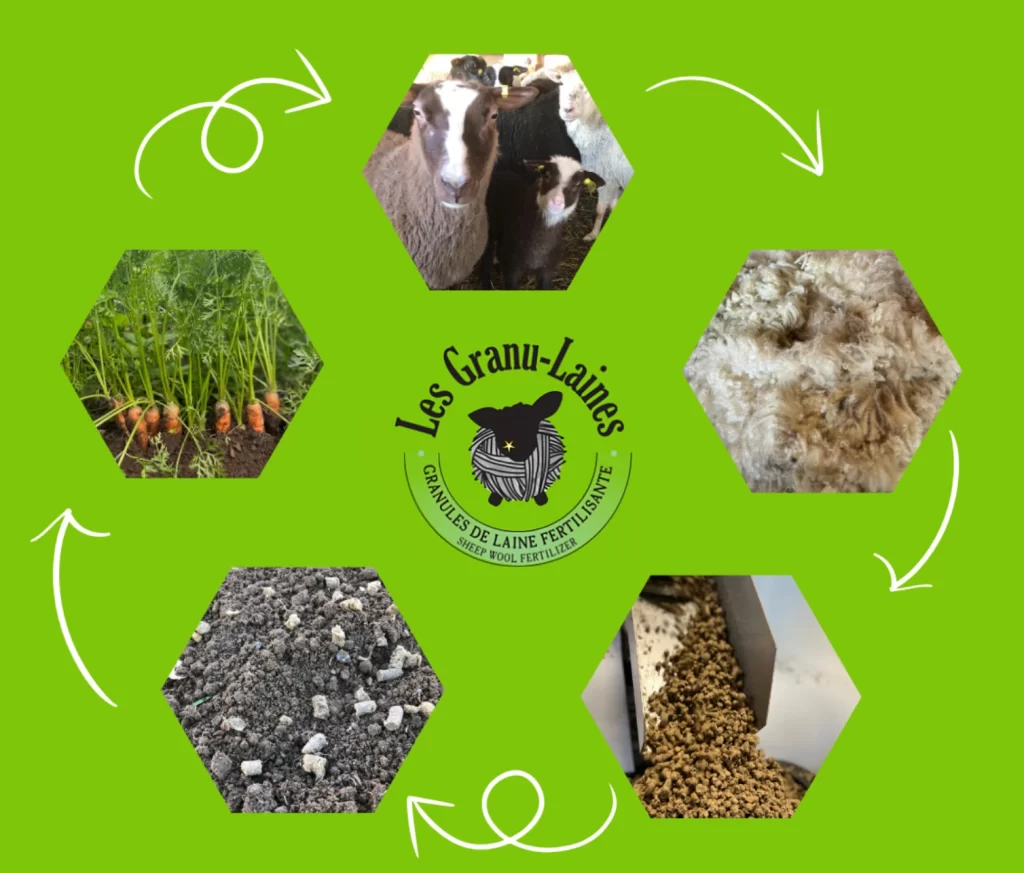
Use of natural resources to their greatest potential: Circular economy. A complete cycle where the resource is used respectfully for as little waste as possible.
First step: Mowing. Then there is the sorting which consists of selecting the finest wool to make knitting yarn. Too short and butt wool is chosen for felting which results in beautiful dryer balls. And finally the wool which is too dirty (contains too much vegetation and dirt) will be transformed into Granu-Laines which will serve as fertilizer for the plants.
The cleanest, quality wool will be more suitable for use by knitters and will therefore be sent to a spinning mill to spin the wool. It is important for us that the wool has a complete use cycle and to ensure a zero waste/zero waste approach. Les Laines Finn D’or is the related company which develops various products with the finest fiber from its sheep. There we find wool for knitting, merfolk for felting and/or spinning, washed raw fleece, drying balls and soaps made from sheep’s and mare’s milk.
This part of the company has specialized since 2015 in the production of 100% natural Finnish sheep wool. This breed has 4 basic natural colors which allow them to obtain different color tones without dyeing. The secondary colors are obtained with an ancestral technique of natural dyeing based on plants and insects.
To find out more, visit our Facebook page: Les Laines Finn D’or

